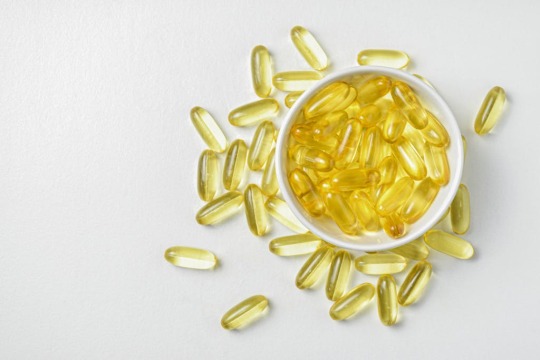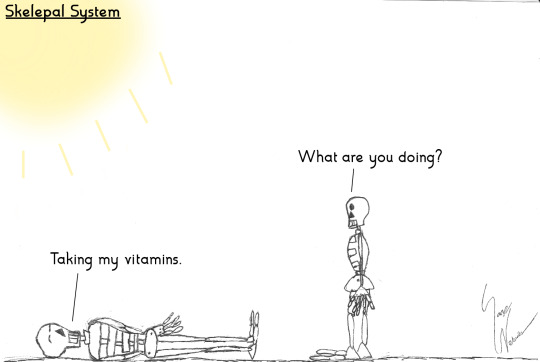#vitamin d sources
Text
Safely Boost Vitamin D: Sun Smart Tips & Alternatives
Discover safe ways to get Vitamin D without sun damage. Tips on diet, supplements, and smart sun exposure. Stay healthy without risking your skin.
#Vitamin D#sun exposure#skin protection#safe sun tips#sunlight alternatives#Vitamin D sources#UV protection#Vitamin D supplements#sun safety#dietary Vitamin D#skin health#sun smart habits
0 notes
Text
Safely Boost Vitamin D: Sun Smart Tips & Alternatives
Discover safe ways to get Vitamin D without sun damage. Tips on diet, supplements, and smart sun exposure. Stay healthy without risking your skin.
#Vitamin D#sun exposure#skin protection#safe sun tips#sunlight alternatives#Vitamin D sources#UV protection#Vitamin D supplements#sun safety#dietary Vitamin D#skin health#sun smart habits
0 notes
Text
Vitamin D & Health
Vitamin D.
Vitamin D is likewise known as the sunlight vitamin since the body makes it when the sunlight’s ultraviolet B (UVB) rays struck the skin. It is technically a hormonal agent since it is the only vitamin that the body manufactures. It is important in constructing strong bones and teeth. Vitamin D also reinforces the body immune system and protects against some kinds of cancer. Ten to…

View On WordPress
#vitamin d 25 hydroxy#vitamin d benefits#vitamin d deficiency#vitamin d deficiency symptoms#vitamin d foods#vitamin d rich foods#vitamin d sources#vitamin d supplement
0 notes
Text
#vitamin D deficiency#health and wellness#nutrition#sunlight exposure#bone health#immune system#mental health#vitamin D sources#supplements#healthy lifestyle#sunlight benefits#vitamin D deficiency symptoms#vitamin D deficiency treatment#health & fitness#wellness
1 note
·
View note
Text
The Impact of Vitamin D Deficiency on Your Health
youtube
#vitamin d deficiency symptoms#vitamin d deficiency signs#vitamin d deficiency#vitamin d deficiency causes#vitamin d sources#Vitamin d food#slow vitamin d#Youtube
1 note
·
View note
Text
Why Vitamin-D is important
Hallow! my dear all friends. How r you, hope all r good and healthy.
Today we're going to discuss about Vitamin D. So let's begin...
Vitamin D has many benefits to health. Musculoskeletal problems are more common in those with vitamin D deficiency/insufficiency. This includes osteoporosis, an increased risk of fractures, an increase risk of falls and reduced muscle function.
Osteoporosis affects a large percentage of nursing home residents. Osteoporosis is a bone disease associated with low bone mass and an increased risk of fracture. Ten million Americans are afflicted with osteoporosis while 34 million are afflicted with osteopenia. It is estimated that 70 to 85 percent of individuals who live in a nursing home have osteoporosis.
Osteoporosis is associated with inadequate calcium intake, but vitamin D helps with calcium absorption. Long-term vitamin D deficiency increases the risk of osteoporosis2. Vitamin D may prevent osteoporosis in older adults who are non-ambulatory, those on chronic steroids and for post-menopausal women.
Vitamin D supplementation has the potential to increase bone density. In one study there was an increase in the density of lumbar spine and the femoral neck bone with vitamin D supplementation of 50,000 international units twice a week for five weeks in those who were vitamin D deficient.
Vitamin D and calcium together reduce fractures in institutionalized older adults, but vitamin D alone is not effective in reducing the risk of falls or fractures. Those over the age of 65 with low vitamin D levels are at increased risk for hip fractures and reduced muscle mass and strength.
Vitamin D has the potential to reduce the risk of falls. It potentially does this through the improvement of muscle function. Low levels of vitamin D in the blood are linked to the poorest muscle function and higher levels are linked to better muscle function. Those with a low baseline level of serum 25-hydroxyvitamin D concentration (between 10-20 ng/ml) are likely to benefit the most in regards to muscle strength when supplemented with vitamin D.
When vitamin D supplementation is consumed in doses of 700 to 1000 international units per day the risk of falls are reduced. When 500,000 units of cholecalciferol were given once annually the risk of falls was actually increased.
Cancer
A link between vitamin D and cancer has been established. Vitamin D may help in the prevention of colon, breast and prostate cancer. Precancerous lesions of the intestine and breast are linked to a deficiency of the vitamin D receptor in animals.
Many cancers have been linked to poor vitamin D status. Colorectal cancer risk is increased in those with poor vitamin D status. One analysis showed that those who consume 1000 international units per day of vitamin D have a reduced risk of colorectal cancer. Another analysis showed that vitamin D intake is inversely related to the risk of colorectal cancer. Despite the positive data on vitamin D, the research is inconsistent and the National Cancer Institute does not advise for or against the use of vitamin D supplements to lower the risk of colorectal or any other type of cancer.
Some studies show serum 25-hydroxyvitamin D concentration is associated with a reduced risk of breast cancer but findings do not reach statistical significance. More research is needed to determine the role of vitamin D on breast cancer risk.
There is some evidence that vitamin D may be harmful. One large prospective study suggested that vitamin D does not decrease the risk of prostate cancer and higher circulating vitamin D levels may be associated with an elevated risk of aggressive disease. Other research suggests that those with the highest level of vitamin D may be at an increased risk for pancreatic cancer.
Despite some research suggesting that vitamin D reduces the risk of some cancers, current evidence does not recommend large doses of vitamin D in the prevention of cancer. A large analysis of over 16,000 people suggested that total cancer mortality is not related to baseline vitamin D status. Overall research does not support role of vitamin D in the prevention of cancer. More research is needed to determine the exact link between cancer and vitamin D.
Immune system
Vitamin D has effects on the immune system. Vitamin D may reduce the risk of autoimmune diseases in animals. Diseases that may be affected by vitamin D status include: diabetes mellitus type 1, multiple sclerosis and inflammatory bowel disease.
Vitamin D supplementation in early infancy reduces the risk of type 1 diabetes. One study suggested that those with a serum 25-hydroxyvitamin D concentration below 20 ng/mL had about a twofold increased rate for the future development of multiple sclerosis. Currently only animal, in vitro and epidemiological studies suggest a link between diabetes/multiple sclerosis and vitamin D. Before a firm conclusion can be reached, randomized controlled trails need to occur.
Higher levels of vitamin D are associated with a lower risk of Crohn's disease. The impaired regulation of vitamin D is related to the development of autoimmune processes (including inflammatory bowel disease) in animals. The administration of vitamin D may improve these symptoms.
Vitamin D may help fight both bacterial and viral infections. Vitamin D levels are linked to tuberculosis. Vitamin D deficiency may be more common in those with tuberculosis. Vitamin D may have a role in the treatment of tuberculosis, but more research is needed before this link is definitely established.
Vitamin D levels may have a beneficial effect on respiratory tract viral infections, but this relationship is not strongly established. Multiple studies have not found a link between vitamin D status and the prevention of viral respiratory infections. A more recent analysis suggested that vitamin D supplementation may reduce the risk of viral upper respiratory tract infections and tuberculosis.
Vitamin D and the Heart
Many genes in the cardiovascular system are regulated by vitamin D. Vitamin D deficiency has been linked to heart attack, stroke, high blood pressure, diabetes, peripheral vascular disease and heart failure. There is a paucity of studies that look at vitamin D and cardiovascular disease. Observational research suggests that there is a link between cardiovascular disease and vitamin D status. More research is needed to determine the role of vitamin D supplementation in cardiovascular disease.
The renin-angiotensin system is regulated in part with the help of vitamin D. There is an inverse relationship between incident hypertension and serum 25-hydroxyvitamin D concentration. More research is needed to confirm a causative relationship between vitamin D levels and blood pressure.
In a review study, five out of seven studies showed an inverse relationship between the serum 25-hydroxyvitamin D level and cardiovascular disease. The prevalence of coronary heart disease is higher in those with a low serum 25-hydroxyvitamin D concentration than those with higher levels. Supplementation with vitamin D did not result in any beneficial effect on risk factors for cardiovascular disease and no benefit was appreciated after increasing the serum 25-hydroxyvitamin D concentration from 23 ng/mL to over 40 ng/mL.
Vitamin D and Other Diseases
Diabetes is linked to vitamin D. The link between vitamin D and diabetes mellitus type 1 was discussed above. Low vitamin D levels are associated with type 2 diabetes. Higher levels of vitamin D intake are associated with a lower risk of type 2 diabetes. Despite these correlations, interventional studies with vitamin D have not demonstrated that vitamin D supplementation reduces the risk of diabetes.
Vitamin D is important for brain development, so it may be linked to psychopathology. Low levels of serum 25-hydroxyvitamin D have been shown to be present in those with Alzheimer's disease and depression. These studies do not demonstrate that low levels of vitamin D are the cause of these conditions.
Low levels of vitamin D may increase the risk of death. Even though there is an association between vitamin D and all cause mortality, it is unclear if this increased risk of death is strictly related to the vitamin D deficiency or simply overall poor health status. Some studies suggest that cancer patients have a reduced risk of mortality with a higher vitamin D level, but other studies showed no association between cancer death rates and serum 25-hydroxyvitamin D concentration.
A recent analysis showed that higher vitamin D levels. are associated with reduced all-cause mortality, but no association between vitamin D levels and stroke or ischemic heart disease was established. Those with severe chronic renal failure are at increased risk for death with low levels of serum 25-hydroxyvitamin D concentration and treatment with vitamin D improves survival.
Vitamin D 4000iu
Hope you all r understand today's point. I will back with new topic, until then, stay happy and healthy.
Thank You.

0 notes
Text




One perk of being a skeleton is that you don't have to worry about sunburn.
#skelepal system#skeletons#halloween#traditional art#my art#the sun is a good source of vitamin D but it's hard to soak that up w/o the harmful UV you know#skeletons are so lucky they don't have that problem
49 notes
·
View notes
Text






Glee TV Jenna Ushkowitz Tina Unpublished Wardrobe Photos
#source: glee#jenna ushkowitz#105 the rhodes not taken#106 vitamin d#107 smackdown#110 ballad#117 bad reputation#amber riley#kevin mchale
19 notes
·
View notes
Text
Really random, but I would like to tell everyone that if you are feeling exhausted and never have energy and it feels like doing anything takes so much effort..... if you can, please get a blood test and see what your vitamin D levels are at
-signed, someone who finally got a primary doctor after years and found out they were super duper vitamin d deficient, and after 6 months of taking supplements feels like a human being again
#this of course does not solve any mental issues. obviously.#or people with much more complex fatigue sources#but i cannot stress how much literally just getting my vitamin d levels up from rock bottom has made me feel alive again#i didnt realize how bad i felt until i suddenly had energy again#truly a random post. i was getting my pill boxes set up for the next week and was suddenly overwhelming grateful to my vitamin d pills#oh if anyone cares apparently the normal range is 30-100 units..... and i was 8#my doctor literally went 'hmm... well i mean... ive had someone at a 5 before so its not the worst?'#like damn alright we need to compare to your worst off patient to my numbers? lmao
5 notes
·
View notes
Text

Let me rot in peace
#he’s looking out for me but at what cost#let me rot in peace#I’m a hermit y’all#fresh air hurts#but I desperately needed vitamin D#did you know there’s a whole lot of people out there#source: the good place#oc#low effort#like really low effort#depression memes#depression
20 notes
·
View notes
Text
my blood work shows that apparently my cholesterol is too LOW which i didn’t even know was a thing but i’m supposed to eat a lot of eggs now
#i’m not a vegetarian or anything but thinking about it i do get a lot of my protein from plant-based sources just because meat is expensive#so maybe that’s it#i’m ordering a burger today though bc i don’t have enough iron either#which makes sense! i’ve been convinced i’m mildly anemic for years but my hematocrit has always come back in the normal range#but it turns out my stored iron is super low which no one has caught before so. thanks psychiatrist !#getting prescription strength vitamin d too bc that’s how low mine is 💀#zoe stuff
3 notes
·
View notes
Text
something deeply fucking wrong with her (my body)
#i didn't get hurt i slept 8+ hours i ate and drank water so WHY does EVERYTHING HURTS#and why do i feel so TIRED#i even sunbathed this past weekend which i never usually do! got some vitamin D#and this is the thanks i get?????#am i allergic to the sun is this what it is#im genuinely feeling terrible but like i cannot pinpoint the source im just sore and aching head to leg#and i just wanna lie down and sleep but ofc i cant#someone shoot me or smth#put me down like a horse im tiredt#deleting l8r
2 notes
·
View notes
Text
Organic Body Butter with Infused Olive Oil, for Eczema, Rosacea !
#DO IT LIKE GRANDMA DID: Tallow--or rendered beef fat--is ancestral skincare. Our ancestors relied almost solely on animal fats to moisturize#protect#and heal their skin. Enjoy our light#meltable#whipped tallow balm as a contemporary nod to the practice of our forefathers.#VITAMIN POWERHOUSE: Tallow is rich in vitamins A#D#E#K and B1 as well as stearic and oleic fatty acids and saturated fat. This yields a balm that is nourishing to your skin#but also highly shelf stable! (Variations in texture are common#due to these unadulterated ingredients).#SOURCING: We source our tallow from small farmers who practice regenerative agriculture. This means that they rotationally#graze their cows all year long#never feeding anything other than grass. These healthy#happy cows create a beautiful#golden yellow fat that contains high levels of vitamins and minerals. Our top tallow supplier is Polyface Farm in Virginia. We slow-render
0 notes
Text

Should You Take Vitamin D? Here’s The Science! Some People Take Too Much, And Too Many Get Too Little. Experts Explain Who Needs D Supplements, And Why.
— By Katarina Zimmer | April 18, 2024 | KnowableMagazine.Org
Nutritional science is supposed to chart a course to our healthier selves. But contradictory scientific results and interpretations can muddy the waters — and few nutrients have recently demonstrated that more clearly than vitamin D.
At one point, it seemed that everyone should be taking vitamin D supplements, and that doing so would protect against a whole host of maladies, from bone problems to heart disease and cancer. More recently, new studies appear to have debunked many of those claims.
But a closer look at the research reveals a more nuanced message around vitamin D supplements: They can be key to correcting deficiencies, though people who already have enough — which is most of the American public — are generally unlikely to see benefits from taking large doses. Experts have come to worry about supplement enthusiasts overdosing in the belief that more is better or, at the other extreme, some nutrient-deprived people shunning them altogether.
Ultimately, says Roger Bouillon, an endocrinologist at KU Leuven in Belgium, “it’s like for most things. You need an optimal amount: not too little, not too much.”
Yet working out who needs vitamin D supplements, how much, and what the specific health benefits are, remains tricky, with questions remaining. Here’s some of what we know.
What Does Vitamin D Do, and Where Does It Come From?
The importance of vitamin D came to light at the start of the Industrial Revolution in the late 1700s, when people in northern climes crowded in dark, polluted cities and spent more time working indoors. The majority of children in cities like Boston developed rickets, wherein bones soften, weaken and often deform.
Scientists eventually discovered that exposure to sunlight would cure and prevent the disease. Later, researchers learned that UV light from the Sun kick-starts a reaction that generates vitamin D. The vitamin gets converted into its active form in the kidneys and then is shuttled to the intestine, where it stimulates cells to move calcium, a key building block of bones, into the bloodstream. “The most important thing vitamin D does is intestinal calcium absorption,” says Sylvia Christakos, a biochemist at Rutgers New Jersey Medical School.

Severe vitamin D deficiency can cause the disease known as rickets, in which a lack of calcium leads to bone deformities. The disease was common among children in dark, northern cities before the discovery of vitamin D. Credit: Wellcome Collection
Though the effects are most severe in children, vitamin D deficiencies can also cause a softening of adult bones called osteomalacia, and increase the risk of osteoporosis, where bones become weak, brittle and more prone to fractures. Though experts debate what exactly constitutes a vitamin D deficiency — and know that healthy levels may vary from person to person — everyone agrees that blood levels should not go below 12 nanograms per milliliter to avoid severe deficiency.
Such severe deficiencies — and the bone ailments they cause — are still rampant across the world. Surprisingly, more than 30 percent of people in some sunny Middle Eastern countries are severely deficient, which may be partly attributed to skin-covering traditional clothing. By contrast, in Finland, a sun-deprived country with dark winters, severe deficiencies are relatively rare, thanks to government policies to fortify dairy products with extra vitamin D.
In contrast, around 20 percent of the United Kingdom’s population is severely deficient by some estimates, due to its northern, cloudy weather and a lack of fortified foods. The United States, where many dairy products, and some juices and breakfast cereals, are fortified, falls somewhere in the middle: Around 6 percent of people are severely deficient. “For the most part in the US, we don’t see frank nutrient deficiencies,” says Regan Bailey, a nutrition expert at Texas A&M University who recently coauthored a review on supplement use among the public in the Annual Review of Nutrition. (Some research groups have produced much larger deficiency estimates by using blood level thresholds that many experts say are too high to qualify as nutrient deficiencies.)
Since 2010, the National Academy of Medicine has recommended relatively modest daily doses: 400 international units (IUs) for babies, 600 IUs for everyone up to age 70 and 800 IUs for older people. These doses are designed to achieve levels of 20 nanograms per milliliter — more than enough to avoid severe deficiencies — for otherwise healthy people in the United States.
Most people should be able to get these doses through brief sun exposure, says John Christopher Gallagher, an endocrinologist at Creighton University in Omaha, Nebraska. Measuring vitamin D production in the skin is not an exact science, but five to 10 minutes’ daily exposure without sunblock of just the face, neck, hands and arms should do the trick in the sunnier months, even in temperate places like Boston. While it’s entirely possible to get enough vitamin D this way, the official stance of the American Academy of Dermatology is to not get vitamin D from sun exposure.
Fortified dairy products and other foods will also provide enough. Foods that naturally contain vitamin D, such as fatty fish, egg yolks, red meat, liver and irradiated or sun-dried mushrooms, which are especially rich in vitamin D due to their increased exposure to UV light, can also help. “If you’re out and about and you have sun exposure during some months of the year,” Gallagher says, “you probably get plenty of vitamin D.” That’s especially true if you have enough dairy in your diet.

A few common food items can deliver a significant portion of your daily vitamin D needs, either because they are naturally rich in it or because they are fortified with the vitamin.
Does Anyone Need Supplements?
Generally, people need supplements only when they’re not likely to get enough from natural or dietary sources, health experts say. Deficiency-prone populations include breastfed infants who don’t get fortified formula, elderly people (whose skin makes vitamin D less efficiently) and pregnant women. People with dark skin tones should also take care to get sufficient vitamin D, because melanin pigmentation in the skin blocks UV light. People in northern latitudes like England “should all take a supplement during the winter,” adds nutritional scientist Susan Lanham-New of the University of Surrey in the UK, although that’s less important in places like the United States that have food fortification.
Experts worry that it’s often the people already getting enough vitamin D through diet and lifestyle who are the most likely to take supplements, Christakos notes. Meanwhile, communities who need vitamin D supplements the most might not realize their need and may have read news reports suggesting that the supplements aren’t necessary.
That’s an especially dangerous message in countries where deficiencies are common — for instance in the UK, where physicians still see children with deficiency-related ailments, says Martin Hewison, a molecular endocrinologist at the University of Birmingham in that country. One of his UK colleagues is struggling to persuade some of her vitamin D-deficient patients to take supplements because they believe it is a waste of time.
For anyone concerned that they’re not getting enough vitamin D, experts say that up to 1,000 IUs a day would more than suffice. If possible, Lanham-New adds, make sure it’s vitamin D3, a version typically extracted from sheep wool that appears to be better at raising vitamin D blood levels than D2, which is often vegan and mushroom-based.
But avoid the high doses — of 5,000, 10,000 or 20,000 IUs, or even higher — that can be found in drugstores or online, stresses JoAnn Manson, an endocrinologist and epidemiologist at Brigham and Women’s Hospital and Harvard Medical School. Too much vitamin D, even when taken occasionally, can sometimes cause bone health to deteriorate and lead to an overdose of calcium in the blood and urine, resulting in nausea and even kidney failure. There are reports of people in the UK and US ending up in the hospital after taking excessive doses.

Certain groups of people are at greater risk of not getting enough vitamin D. Here are some of them.
Some experts have advised that Black Americans, in particular, take higher doses of supplements — for instance, 2,500 IUs — as they’re especially prone to low levels. But here’s a mystery: Even though 17.5 percent of African Americans have deficient levels of vitamin D, those vitamin-deficient Blacks tend to have better bone health than comparably deficient Caucasians, notes biomedical scientist LaVerne Brown of the National Institutes of Health. It’s possible, she says, that African Americans need less vitamin D than other populations, perhaps because they’re better at metabolizing vitamin D to its final active form. If that’s true, then high doses may have a greater risk of causing harm in African Americans.
“We just don’t have the studies that are focusing on these populations in order to come up with definitive answers,” Brown says. In the meantime, an expert panel meeting in 2017 concluded that the current recommended intake should be enough for African Americans, the same as everyone else. “Anything above 800 IU, it’s not clear that there’s a real need for that,” Brown says.
Could Higher Doses Have Benefits?
More than two decades ago, scientists began to make observations suggesting that vitamin D at higher doses could have benefits beyond bone health. Dozens of studies described strong correlations between people’s vitamin D levels and a range of diseases like cardiovascular disease, type 2 diabetes and certain cancers. The lower someone’s vitamin D levels were, the likelier they were to have these diseases, while higher levels were associated with being healthier.
Other research showed that many cell types — in the lungs, heart and immune system — have receptors for the vitamin to dock onto, hinting at far-reaching effects across the body. Giving vitamin D to lab mice with conditions mimicking human diseases could often improve their ailments. Vitamin D, it seemed, might help to tackle the major diseases of our time.
From New Zealand to Europe to North America, scientists launched large clinical trials, enrolling thousands of people over multiple years, to test whether vitamin D supplements would decrease their risk of disease. Importantly, the studies focused on members of the general public, who were largely healthy and had adequate levels of vitamin D. These people then received relatively large doses, of 2,000 or 4,000 IUs or even higher. The studies asked whether there were benefits from getting more than the recommended dietary allowance and ending up with blood levels even higher than 20 or 30 nanograms per milliliter, Manson explains.
To the disappointment of many scientists, giving these generous doses to healthy people didn’t change their risk of developing cancer, heart disease or asthma, nor did it significantly prevent the progression to type 2 diabetes. Extra vitamin D beyond the recommended levels didn’t even do anything to improve bone health or reduce the risk of fractures.

Experts recommend relatively modest daily doses of vitamin D supplements.
There may be a simple biological reason why more vitamin D isn’t necessarily better: The version of vitamin D found in supplements needs to be converted in the liver and kidneys to reach its final, active form — and that process is probably tightly controlled, says Bouillon. “The body regulates that so you have the exact amount, and not more than what you need.”
The takeaway, many experts agree, is that most healthy people aren’t going to benefit from high doses of vitamin D if they already have enough. The tantalizing associations that led researchers to suspect additional powers of vitamin D could have been an illusion: People with illnesses may end up with lower vitamin D levels because of the diseases themselves, or the unhealthy lifestyles that caused them, says Bouillon.
Are Larger Doses Ever Helpful?
A few of the recent trials hinted that some groups of people may benefit from higher doses, but these possible benefits need to be confirmed in further studies, says Manson, who ran one of the trials, called VITAL, which studied nearly 26,000 US adults over five years and looked at supplements of 2,000 IUs of vitamin D as well as omega-3 fatty acids. In that study, participants didn’t have a lower risk of developing cancer but they did have a 25 percent lower chance of it metastasizing or becoming fatal. Perhaps, says Manson, vitamin D makes tumors less likely to metastasize and kill. VITAL also reported that high doses of vitamin D made people less likely to develop certain autoimmune conditions like rheumatoid arthritis, psoriasis and lupus.
Manson notes that these benefits appeared to be most visible among people with a healthy weight, compared to overweight or obese participants. But she cautions that more research is needed to understand these observations and confirm the observed benefits of larger doses.
Physicians in clinical practice, of course, have leeway in prescribing higher doses to certain people as they see fit, such as for osteoporosis patients, or people with conditions that hamper the absorption of vitamin D through the diet, like Crohn’s disease and ulcerative colitis.
What Don’t We Know Yet?
As they probe potential effects of higher doses in non-deficient people, researchers still don’t know how many roles vitamin D might have. The trouble is that recent trials don’t tell us whether having enough vitamin D is important for maintaining healthy heart function or avoiding cancer, for instance — only that having more than that won’t help in most cases.
To prove that adequate vitamin D has health benefits beyond keeping bones strong, scientists need more research in which some deficient people receive supplements and the rest receive a placebo. But such studies are hard to conduct in places like the US, where severe deficiencies are relatively rare. It’s also not ethically justifiable to seek out people who are deficient and then deprive half of them of much-needed supplements, because of the risk of poor bone health in vitamin D-deficient people.
Some scientists believe that having enough vitamin D could be key to maintaining heart and immune system health and preventing diabetes and cancer — and perhaps even be important for brain function, athletic performance and other claims. The evidence is particularly strong in the immune system, says Hewison, whose research points to key roles of vitamin D in immune cells; and indeed, human trials that by chance included some deficient people show benefits of supplementation in warding off infections.
But there just aren’t enough data yet, Hewison says. “I think this is the issue facing the field as a whole.”
#Vitamin D#Vitamin D Supplements#Too Much | Too Many | Too Little#Role of Vitamin D | Source of Vitamin D#Higher Doses | Benefits | Risks#Who Needs | Who Doesn’t#KnowableMagazine.Org
0 notes
Text
Banana Nutrition Facts: Why should you have a banana every day?
Please, visit for more info:

#banana vitamins and minerals#banana calories per banana#are bananas good for you#banana potassium content#banana fiber content#banana sugar content#is banana good for weight loss#banana carbs per banana#banana health benefits#best banana nutrition facts#daily value of potassium in a banana#what vitamins are in bananas#banana nutrition for diabetics#healthiest way to eat a banana#green banana nutrition facts#ripe banana nutrition facts#how much protein is in a banana#is banana a good source of iron#does banana have vitamin d#banana nutrition compared to apple#banana nutrition for before workout#banana nutrition for after workout#can diabetics eat bananas#best time to eat banana for weight loss#are bananas good for digestion#banana nutrition for babies#banana nutrition for kids#organic banana nutrition vs regular banana#dried banana nutrition facts
0 notes
Text
Learning exactly how important vitamin D is to human health by accidentally becoming extremely deficient in it has led me to the conclusion that humans are actually solar powered, it just doesn't become apparent until that stored power drops too low
#stella speaks#coping with bad medical news by making jokes about it#also i know there are sources of vitamin d that aren't the sun but shhhhh let's pretend there's not so the joke works
0 notes